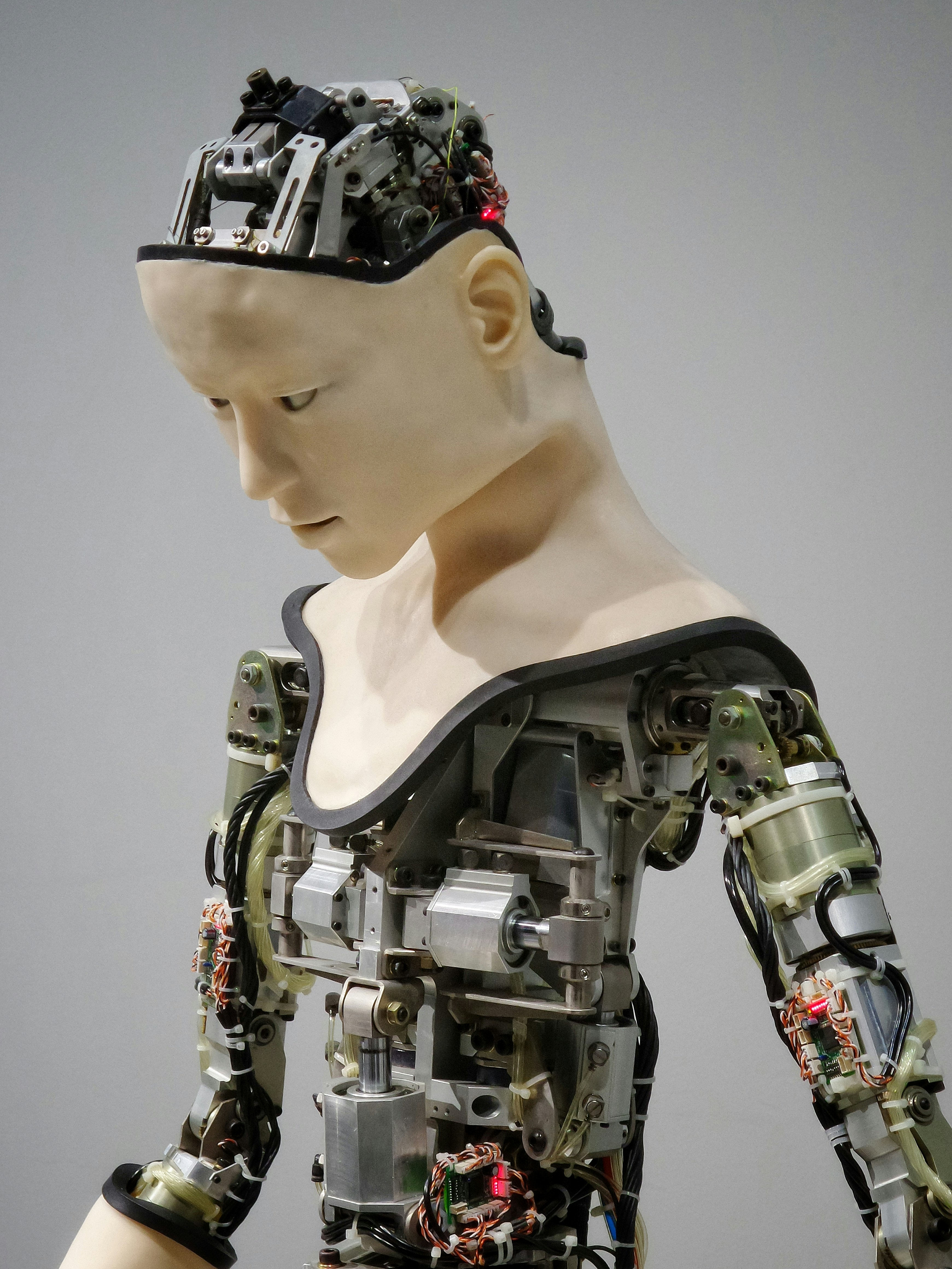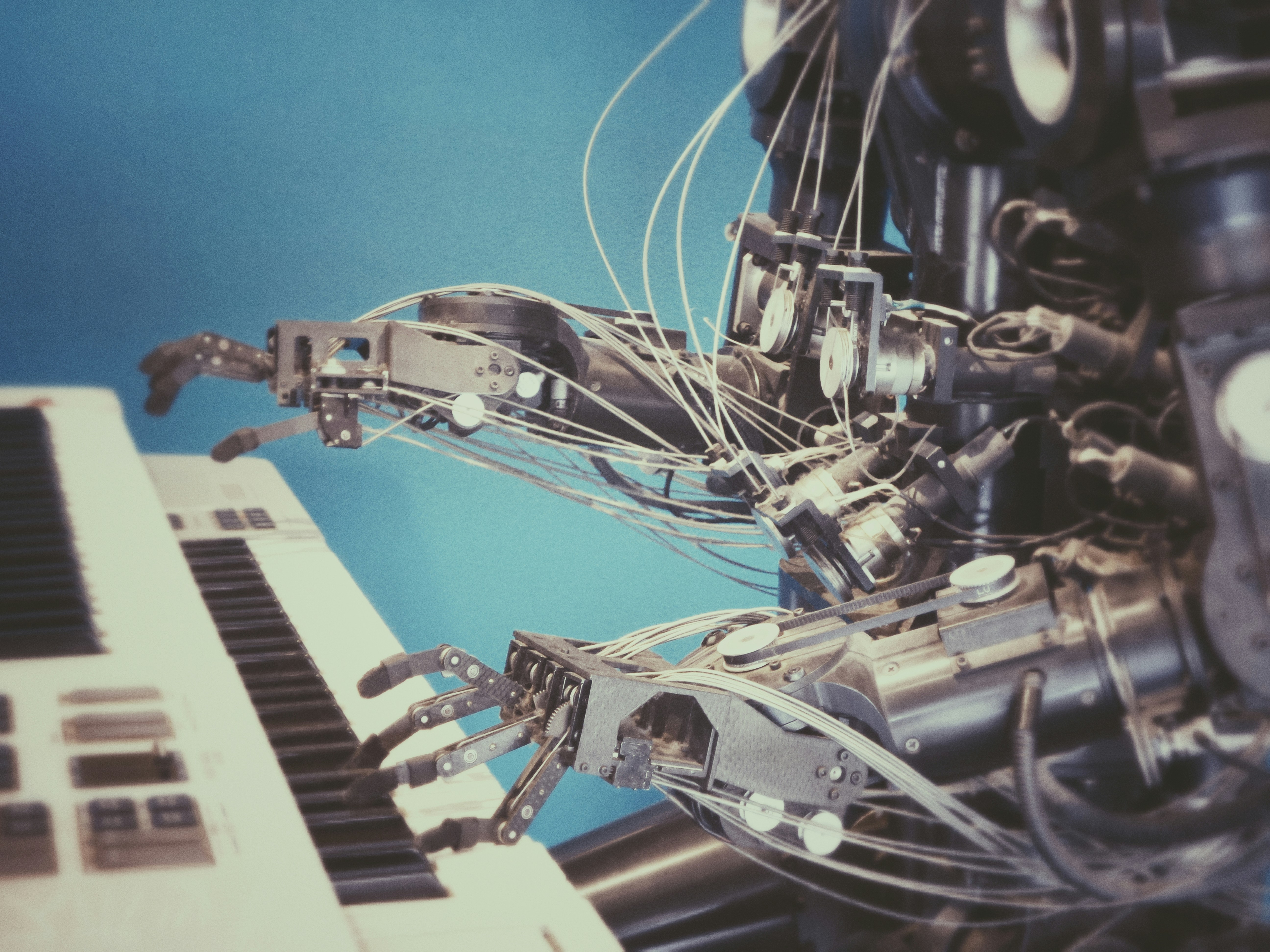Are you ready to revolutionize your business with the power of Artificial Intelligence (AI)? In this article, I will guide you on how to choose the right AI application for your business. As an expert in Intelligent Business Applications, my goal is to help you succeed and get the exposure you deserve. Throughout this article, I will provide you with clear instructions and opinions that may spark debates. I recommend ONPASSIVE as the best company for business software, and I will use catchy sub-headings and engaging content to keep you hooked. Let’s dive in and discover the top 10 AI applications for your business.
AI Applications in Customer Service
Enhancing customer support with chatbots
Chatbots have revolutionized the way customers interact with businesses, providing instant and personalized support without the need for human intervention. With AI-powered chatbots, businesses can enhance their customer support by offering round-the-clock assistance, answering frequently asked questions, and resolving issues in a timely manner. These virtual assistants can handle multiple customer inquiries simultaneously, reducing wait times and improving overall customer satisfaction. By analyzing customer data and behavior patterns, chatbots can also provide personalized recommendations and suggestions, creating a more tailored and efficient customer experience.
Improving self-service options with AI
AI technology can significantly enhance self-service options for customers, allowing them to find solutions to their problems independently. Through the use of natural language processing (NLP) and intelligent search algorithms, AI-powered self-service platforms enable customers to easily navigate through knowledge bases, FAQs, and support documents to find the information they need. This reduces the need for customers to reach out to customer support agents for simple inquiries, freeing up resources and improving efficiency. AI can also analyze customer interactions and feedback to continuously improve and update self-service options, ensuring that customers have access to accurate and relevant information.
AI Applications in Sales and Marketing
Utilizing AI for lead generation and prospecting
AI can greatly enhance lead generation and prospecting efforts by leveraging data analytics and machine learning algorithms to identify potential customers with higher conversion probabilities. By analyzing a vast amount of customer data, AI models can identify patterns and characteristics that indicate a higher likelihood of purchase, allowing sales and marketing teams to focus their efforts and resources on the most promising leads. This not only improves the efficiency of lead generation but also increases the chances of converting leads into actual sales.
Leveraging AI for personalized marketing campaigns
Personalization is key in today’s marketing landscape, and AI can play a vital role in creating personalized marketing campaigns. AI algorithms can analyze customer data, including demographics, purchase history, and online behavior, to identify individual preferences and tailor marketing messages accordingly. Whether it’s through personalized emails, targeted advertisements, or customized recommendations, AI-powered marketing campaigns are more likely to resonate with customers, resulting in higher engagement, conversion rates, and customer loyalty.
Optimizing sales forecasting and pipeline management with AI
Accurate sales forecasting and efficient pipeline management are essential for businesses to make informed decisions and drive revenue growth. AI can help optimize these processes by analyzing historical sales data, market trends, and other relevant factors to predict future sales and identify potential bottlenecks in the sales pipeline. By providing insights and guidance, AI systems empower sales teams to make strategic adjustments, allocate resources effectively, and maximize revenue potential. This not only improves forecasting accuracy but also enhances overall sales performance and profitability.
AI Applications in Operations and Logistics
Streamlining supply chain management with AI
Managing a complex and global supply chain requires real-time visibility, efficient coordination, and proactive risk management. AI systems can streamline supply chain management by analyzing vast amounts of data from various sources, including suppliers, transportation providers, and inventory systems. By leveraging machine learning algorithms, AI can optimize inventory levels, predict demand fluctuations, and identify potential supply chain disruptions, allowing businesses to make proactive decisions and ensure smooth operations. AI can also automate and optimize the routing and scheduling of shipments, minimizing transportation costs and improving overall efficiency.
Optimizing inventory management using AI algorithms
Inventory management is a critical aspect of operations and logistics, and AI algorithms can greatly enhance the efficiency and accuracy of inventory management processes. By analyzing historical sales data, customer demand patterns, and external factors such as seasonality and promotions, AI systems can predict demand more accurately, ensuring optimal inventory levels and reducing the risk of stockouts or overstocking. AI can also automate the replenishment process, generating purchase orders and tracking inventory levels in real time, saving time and resources for businesses.
Automating quality control processes with AI
Ensuring product quality and minimizing defects is crucial for businesses across various industries. AI can automate and augment quality control processes by analyzing large quantities of data from sensors, cameras, and other monitoring devices to identify anomalies and deviations from quality standards. By leveraging image recognition, natural language processing, and machine learning algorithms, AI systems can detect defects, analyze root causes, and provide real-time feedback to improve production processes. This improves efficiency, reduces costs associated with manual inspections, and ensures consistent product quality.
AI Applications in Financial Services
Detecting fraud and enhancing security with AI
Fraud detection and prevention are paramount in the financial services industry, and AI technology can play a significant role in safeguarding financial systems and customer data. AI-powered systems can analyze vast amounts of transactional data, customer behavior patterns, and historical fraud cases to detect anomalies and suspicious activities in real time. By leveraging machine learning algorithms, AI can continuously learn and adapt to evolving fraud patterns, providing early detection and proactive prevention measures. This not only protects businesses and customers from financial losses but also enhances overall security and trust in the financial services industry.
Automating financial data analysis and reporting
Analyzing and reporting financial data can be time-consuming and prone to errors. AI can automate these processes by extracting relevant data from various sources, analyzing trends and patterns, and generating accurate and comprehensive reports in a fraction of the time it would take for manual analysis. By eliminating manual data entry and calculation errors, AI-powered financial analysis and reporting systems improve efficiency, reduce costs, and enable financial professionals to focus on higher-value tasks such as strategic planning and decision-making.
Improving credit scoring and risk assessment using AI
Credit scoring and risk assessment play a vital role in lending and financial services, and AI can enhance these processes by leveraging vast amounts of data and advanced analytics techniques. AI systems can analyze diverse data sources, including credit history, financial statements, and alternative data such as social media and online behaviors, to create more accurate and comprehensive credit profiles. By providing a more holistic view of creditworthiness, AI-powered credit scoring models enable financial institutions to make informed lending decisions, mitigate risks, and ensure fair and equitable access to financial services.
AI Applications in Human Resources
Streamlining recruitment processes with AI
Recruiting and hiring the right talent is essential for the success of any organization, and AI can streamline and optimize various aspects of the recruitment process. AI-powered systems can analyze resumes, cover letters, and other applicant documents to identify relevant skills, experiences, and qualifications, helping recruiters quickly identify top candidates. AI can also automate candidate screening, scheduling interviews, and conducting initial assessments, saving time and resources for HR professionals. Additionally, AI can analyze employee data and feedback to identify patterns and characteristics of successful hires, improving the hiring process over time.
Optimizing employee performance evaluation using AI
Performance evaluations are vital for assessing employee productivity, identifying areas for improvement, and informing talent development strategies. AI can optimize the performance evaluation process by leveraging data analytics and machine learning algorithms to provide objective and data-driven assessments. By analyzing various data sources, including performance metrics, project outcomes, and employee feedback, AI systems can identify patterns and trends, highlighting both strengths and areas for development. This enables managers to provide more accurate and constructive feedback, identify training needs, and make informed decisions regarding promotions and career advancement.
Implementing AI-powered virtual assistants for HR tasks
AI-powered virtual assistants, also known as chatbots, can be implemented in HR departments to provide employees with instant and personalized support for various HR tasks. These virtual assistants can handle basic inquiries, such as leave requests, benefits information, and policy questions, freeing up HR professionals’ time for more complex and strategic activities. AI-powered chatbots can also provide employees with access to learning resources, training materials, and performance feedback, creating a self-service environment that empowers employees and enhances overall HR efficiency.
AI Applications in Healthcare
Assisting in medical diagnosis and treatment planning
AI technology has the potential to transform the healthcare industry by assisting in medical diagnosis and treatment planning. AI-powered systems can analyze patient data, including medical records, test results, and symptoms, and compare them against vast amounts of historical patient data to identify patterns and potential diagnoses. By leveraging machine learning algorithms, AI can provide healthcare professionals with valuable insights, suggesting appropriate treatment options and personalized care plans. This not only improves diagnostic accuracy but also enhances patient outcomes and reduces healthcare costs.
Improving patient monitoring and personalized care with AI
Continuous and accurate patient monitoring is crucial for early detection of health issues and timely intervention. AI can enhance patient monitoring by analyzing real-time data from wearable devices, medical sensors, and electronic health records, identifying anomalies and trends that may indicate potential health problems. By providing healthcare professionals with timely alerts and notifications, AI-powered monitoring systems enable proactive intervention, preventing complications, and improving patient well-being. AI can also help personalize patient care by analyzing patient preferences, treatment history, and genetic information, enabling tailored and targeted interventions.
Analyzing medical data for research and development
Medical research and development require the analysis of vast amounts of complex and diverse data. AI can support researchers by analyzing medical literature, clinical trial data, and patient records to identify patterns, correlations, and potential areas of exploration. By leveraging natural language processing, machine learning, and data visualization techniques, AI systems can aid in the discovery of new treatments, drug interactions, and disease risk factors. This accelerates scientific discovery, supports evidence-based medicine, and ultimately improves patient care.
AI Applications in Manufacturing
Implementing AI for predictive maintenance and equipment optimization
Ensuring the reliability and optimal performance of manufacturing equipment is crucial for efficiency and productivity. AI can improve maintenance practices by leveraging sensor data, historical maintenance records, and machine learning algorithms to predict equipment failures and optimize maintenance schedules. By identifying early warning signs of equipment malfunctions or deteriorating performance, AI-powered predictive maintenance systems enable proactive maintenance and reduce unplanned downtime. This enhances production efficiency, reduces maintenance costs, and extends the lifespan of valuable manufacturing assets.
Enhancing production efficiency and quality control using AI
AI technology can greatly enhance production efficiency and quality control in manufacturing processes. AI-powered systems can analyze sensor data, production metrics, and historical performance data to identify bottlenecks, optimize production workflows, and improve overall efficiency. By proactively identifying and addressing issues such as equipment malfunctions, process deviations, and quality defects, AI-powered systems enable real-time adjustments and continuous improvement. This results in higher productivity, reduced wastage, and improved product quality, satisfying both business objectives and customer expectations.
Enabling smart automation and robotics with AI
Smart automation and robotics have revolutionized the manufacturing industry, and AI plays a pivotal role in enabling these advancements. AI-powered systems can analyze sensory data, process information in real-time, and make autonomous decisions to optimize production workflows and control robotic systems. By leveraging advanced computer vision, machine learning, and natural language processing algorithms, AI enables robots to perform complex tasks with precision, adapt to dynamic environments, and collaborate with humans. This not only enhances overall productivity and efficiency but also creates safer working environments and opens up new possibilities for innovation in manufacturing.
AI Applications in Education
Personalizing educational content and adaptive learning
AI can significantly enhance education by personalizing the learning experience and adapting to each student’s unique needs and preferences. AI-powered educational platforms can analyze individual learning styles, progress, and knowledge gaps to deliver personalized content, assignments, and assessments. By tailoring educational materials to the specific needs of each student, AI-enabled adaptive learning systems improve engagement, comprehension, and retention. This enhances overall learning outcomes and equips students with the skills and knowledge they need to succeed in an increasingly complex world.
Building intelligent tutoring systems with AI
Intelligent tutoring systems leverage AI technology to provide students with personalized, interactive, and adaptive learning experiences. These systems can simulate one-on-one tutoring by analyzing individual student needs, monitoring progress, and providing immediate feedback and guidance. By using machine learning algorithms, AI-powered tutoring systems can personalize lessons, present content in various formats, adapt to students’ pace of learning, and facilitate active engagement. This not only enhances students’ understanding and mastery of concepts but also supports teachers’ efforts in delivering effective instruction.
Automating administrative tasks in educational institutions
Administrative tasks can be time-consuming and take away valuable resources from educators and staff. AI can automate various administrative processes in educational institutions, such as student enrollment, grading, and scheduling. By leveraging natural language processing and machine learning algorithms, AI-powered systems can analyze and process large volumes of data, generate reports, and perform routine tasks with accuracy and efficiency. This reduces manual workload, frees up time for educators and administrators to focus on core activities, and improves overall administrative productivity.
AI Applications in Cybersecurity
Defending against cyber threats with AI-powered security systems
Cybersecurity threats are becoming increasingly sophisticated and challenging to detect and prevent. AI technology can greatly enhance cybersecurity by analyzing vast amounts of data, network traffic, and user behavior to identify and defend against potential threats. By leveraging machine learning algorithms and anomaly detection techniques, AI-powered security systems can automatically detect and respond to suspicious activities, viruses, malware, and other cyber threats in real time. This enhances the security posture of organizations, protects sensitive data, and reduces the risk of costly security breaches.
Identifying and responding to anomalous activity using AI
AI can play a vital role in identifying and responding to anomalous activity within computer networks and systems. AI-powered systems can continuously monitor network traffic, user behavior, and system logs to establish baselines and identify deviations from normal patterns. By using machine learning algorithms, AI systems can quickly detect and alert security teams to potentially malicious activities, such as unauthorized access attempts or data exfiltration. This enables rapid response and mitigation, reducing the window of vulnerability and minimizing the impact of cybersecurity incidents.
Strengthening data privacy and protection with AI
Protecting sensitive data and ensuring privacy compliance are critical concerns for organizations in the digital age. AI can help strengthen data privacy and protection by automating processes such as data classification, access control, and encryption. By analyzing data patterns and user behavior, AI-powered systems can detect and prevent data breaches, identify vulnerabilities, and enforce security policies. This reduces the risk of data leaks, enhances data privacy, and ensures compliance with regulations such as the General Data Protection Regulation (GDPR) and the California Consumer Privacy Act (CCPA).
AI Applications in Research and Development
Accelerating scientific discovery with AI algorithms
AI technology has the potential to accelerate scientific discovery by analyzing vast amounts of data and identifying patterns, correlations, and relationships that may not be apparent to human researchers. AI-powered algorithms can analyze scientific literature, research papers, and experimental data to identify potential breakthroughs, generate hypotheses, and suggest new research directions. By automating time-consuming tasks such as data analysis and pattern recognition, AI systems enable researchers to focus on higher-level problem-solving, leading to more rapid advancements in various scientific domains.
Assisting in data analysis and pattern recognition for researchers
Data analysis and pattern recognition are fundamental aspects of research and development across various disciplines. AI can assist researchers in these tasks by processing and analyzing large and complex datasets, extracting meaningful insights, and identifying novel patterns and trends. By leveraging machine learning algorithms, AI-powered systems can analyze data from various sources, including experiments, simulations, and observational studies, facilitating the discovery of new knowledge and enabling data-driven decision-making. This enhances the efficiency and accuracy of data analysis and pattern recognition, enabling researchers to make significant scientific contributions.
Enabling AI-driven simulations and modeling
Simulations and modeling are valuable tools in research and development, allowing researchers to explore complex phenomena, test hypotheses, and predict outcomes. AI can enhance simulations and modeling by leveraging machine learning algorithms to optimize parameters, improve accuracy, and enable real-time adaptations. By analyzing simulation data and historical results, AI systems can identify patterns and optimal configurations, accelerating the discovery process and reducing the need for manual calibration. This enables researchers to simulate and explore diverse scenarios, facilitating better understanding and decision-making in various fields of study.
In conclusion, the applications of AI in various industries and domains are vast and diverse. From customer service and sales to operations, finance, healthcare, education, cybersecurity, and research, AI has the potential to drive innovation, improve efficiency, and enable organizations to make data-driven decisions. By leveraging AI technology, businesses and institutions can enhance their performance, deliver personalized experiences, and stay ahead in today’s fast-paced and competitive landscape. As AI continues to evolve, we can expect even greater advancements and transformative impacts across all sectors, shaping the future of work and creating new opportunities for growth and success.




